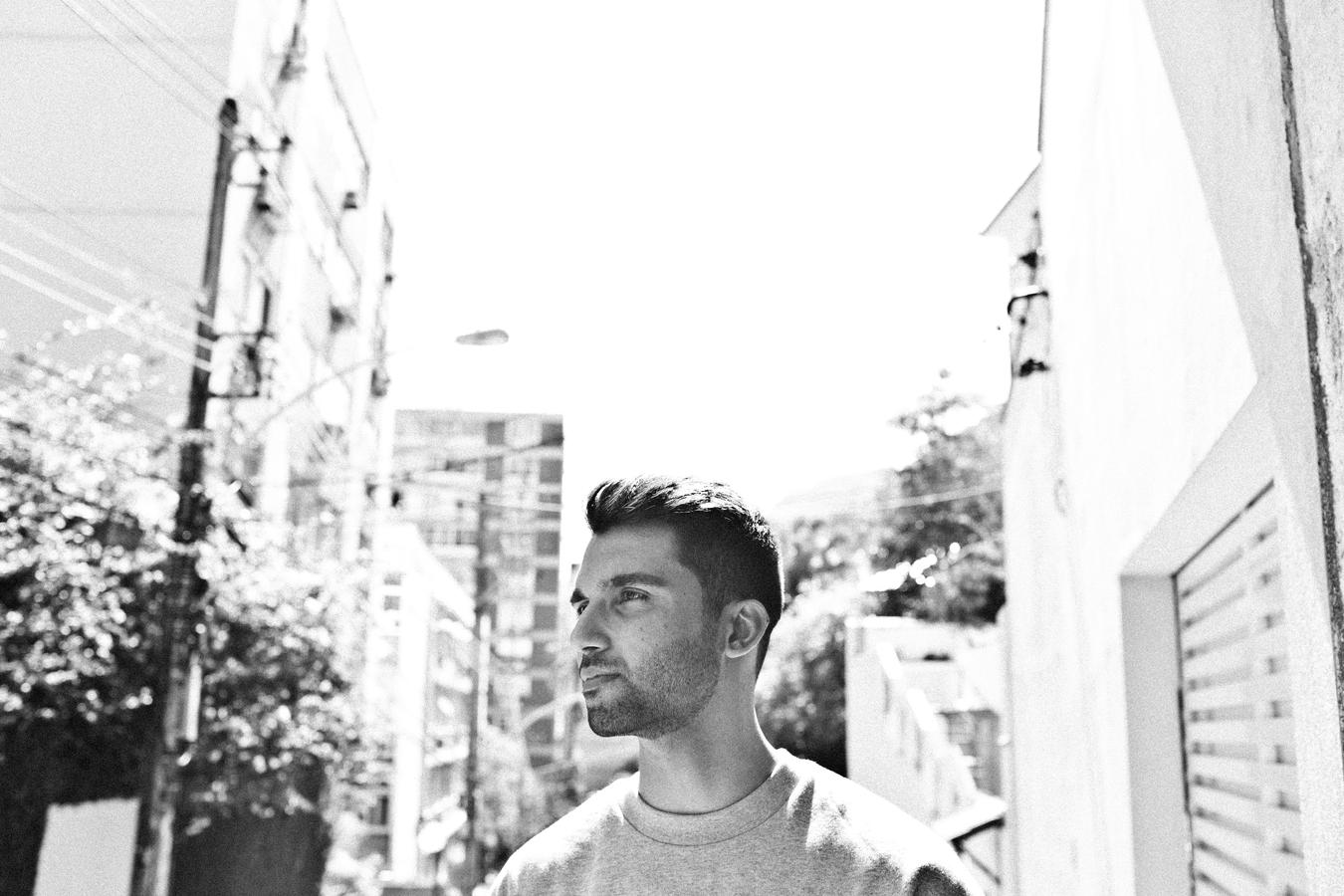Not every artist can say they’ve created a new genre, particularly coming from a place as musically rich as Brazil. But SILVA, a rapidly rising young multi-instrumentalist and songwriter, is staking a claim as the originator of “Brazilian dream pop.”
With his sophomore album, Ocean View (Six Degrees Records, 2014), SILVA is building on his rocketing success in his native country and in Portugal. His “delicious pop melodies” (Rolling Stone Brazil) thrill crowds who know his lyrics by heart and sing along at major music festivals such as Lollapalooza Brazil and Rock in Rio. Singing in English and Portuguese, he has shared the same stage with artists including The xx and Lana Del Rey and is poised to win over new fans with his unique blend of catchy electronic pop built on a Brazilian foundation.
“I love dream pop and ambient,” SILVA says, “and I try to mix it in my music.” The breezy atmosphere of Ocean View is also quite i...
Show the rest
Not every artist can say they’ve created a new genre, particularly coming from a place as musically rich as Brazil. But SILVA, a rapidly rising young multi-instrumentalist and songwriter, is staking a claim as the originator of “Brazilian dream pop.”
With his sophomore album, Ocean View (Six Degrees Records, 2014), SILVA is building on his rocketing success in his native country and in Portugal. His “delicious pop melodies” (Rolling Stone Brazil) thrill crowds who know his lyrics by heart and sing along at major music festivals such as Lollapalooza Brazil and Rock in Rio. Singing in English and Portuguese, he has shared the same stage with artists including The xx and Lana Del Rey and is poised to win over new fans with his unique blend of catchy electronic pop built on a Brazilian foundation.
“I love dream pop and ambient,” SILVA says, “and I try to mix it in my music.” The breezy atmosphere of Ocean View is also quite intentional, he says. “I was very near to my grandfather, and he was very important to me. When I was doing my first album, he passed away, and it was very sad for me. And I think it influenced the whole thing. In the second album, I was wanting to do something more happy. I wanted to make something more smooth, more tropical.”
Thus the music mirrors the pacific atmosphere of his home on the island of Vitória (some 500 km north of Rio de Janeiro). “My house is very close to the sea, and the sea is something very important for me. And Brazilian music has a lot of sea themes — everybody sings about the sea.”
But while SILVA builds on Brazilian roots, he doesn’t fit into established categories. He hesitates a bit at being called by some “the new voice of Música Popular Brasileira.” “MPB used to be a definition of a music style, having something to do with bossa nova, samba and new bossa nova. But now I don’t know how to define it. Something has been lost in MPB, I think, and I’m trying to expand upon it in my music. My goal is to not just make music for Brazil. With the Internet, you can make music for anyone and play everywhere! That’s what I’m trying to do.”
Both his path to success and his musical makeup make SILVA the very model of a global musician. Despite hailing from the musical powerhouse of Brazil and coming from a musical family (his mother is a music teacher, his uncle is a pianist), it took a year in Ireland for SILVA to find his musical voice. While in Dublin in 2009, he was part of a multinational jazz-blues busking band called Captain Magic.
“Everyone was from a different country,” SILVA recalls. “There was a Spanish guy, an Irish guitarist, a Brazilian, an Italian. This was when I discovered that I wanted to do my own music. Then I started to do my first songwriting. When I discovered that I could make my own music, it was a new experience for me.”
Upon returning to Brazil, SILVA wrote a few songs and released his first EP (which was later expanded and released as his first album, Claridão). Two months later, after buying tickets to see several of his favorite artists at the 2012 Sónar Festival in São Paulo, he received a surprise call inviting him to the festival as a performer. He was thrilled — and terrified. He had just a few months to assemble a band and write enough new songs to create a concert. And unlike his Dublin busking days, this time he’d be performing in front of a thousand people.
After the show, he was a wreck. “I’m a perfectionist, so I was like, ‘Oh it was terrible,’ and I was almost crying when I left the stage. But the critics were nice, so I was happy.”
Bolstered by such success, SILVA is embracing this new phase of his life. His openness and optimism are reflected in “Janeiro,” one of two songs on the album with an English as well as a Portuguese version. “Every year at the beginning of January I have a very positive feeling that the year is going to be great.” Even for those where January means winter instead of summer, he says, “I think it has this feeling of a new year, a new moment.”
The Janiero EP (August 12), featuring the English-language version of the song, offers a taste of the full-length album, and includes remixes by Cosmic Kids, Teen Daze and Marbeya Sound.
Ocean View does have its melancholy moments, as on the song “Okinawa,” which features vocals by singer Fernanda Takai (lead vocalist of the Brazilian rock band Pato Fu). “It makes sense for me to have a Japanese-Brazilian singer for this song talking about distance and the feeling of being far away from the person you like,” SILVA says.
With the fresh appeal of Ocean View, SILVA is poised to expand the very concept of what Brazilian music sounds like, and to win new fans worldwide with his “Brazilian dream pop.”
“Even if they don’t understand Portuguese, I think people can understand the music that I’m trying to show them. I’m very happy that my music is going to other places. I never expected that. I’m happy with the things that are happening now, and I hope that I can do it forever.”
Hide the rest












